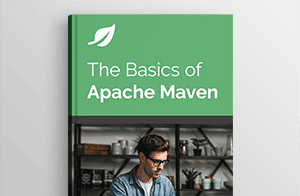Let's get started with a Microservice Architecture with Spring Cloud:
Java Web Weekly, Issue 117
Last updated: September 5, 2020
At the very beginning of last year, I decided to track my reading habits and share the best stuff here, on Baeldung. Haven’t missed a review since.
Here we go…
1. Spring and Java
>> JEP 286 Survey Results for Local Variable Type Inference [infoq.com]
A quick followup to the survey Brian Goetz ran to take the pulse of the community on the best way to implement type inference in Java. Looks like a pretty decisive yes.
>> Simplifying Database Queries with Jinq [infoq.com]
Jing looks like a clean, nice way to access your SQL data – here’s just a quick example to show you what the library can do.
>> Improve Your JUnit Experience with this Annotation [jooq.org]
Very quick and to the point way to run your tests in a more predictable order – which makes a lot of sense.
I personally actually like the unpredictable nature of tests – it’s a quick and nice way to flush out any unforeseen connections between them – but I can certainly see the appeal of running them in a clear order.
>> How to call Oracle stored procedures and functions from Hibernate [vladmihalcea.com]
A very practical and useful guide to using stored procedures with Hibernate. A bit annotation-heavy, but if you’re using JPA, you’re already used to that.
Also worth reading:
-
>> Pros and cons of JEP 286 [royvanrijn.com]
-
>> Spring Batch Tutorial: Reading Information From an Excel File [petrikainulainen.net]
-
>> Robot Framework Tutorial 2016 – Selenium2Library as a drop-in replacement for SeleniumLibrary [codecentric.de]
-
>> Invokedynamic – Java’s secret weapon [infoq.com]
-
>> The Spring Boot Dashboard in STS – Part 4: Working with Cloud Foundry manifest files [spring.io]
-
>> A Geospatial Messenger with Kotlin, Spring Boot and PostgreSQL [spring.io]
-
>> Developing With Docker – Building Patterns [alexecollins.com]
-
>> Finding duplicate objects with Eclipse MAT [alblue.bandlem.com]
-
>> Three practices for creating readable test code [ontestautomation.com]
-
>> Unit Testing with Mock Objects [reliablesoftwareblog.com]
Webinars and presentations:
-
>> Testing your Spring Boot Application with Selenium [infoq.com]
-
>> From Zero to Hero with Spring WebSocket [infoq.com]
-
>> What it means to be Just In Time [spring.io]
-
>> Building microservices with event sourcing and CQRS [spring.io]
Time to upgrade:
-
>> Spring Security 4.1.0.RC1 Released [spring.io]
-
>> First Release Candidate of Spring Data Hopper Released [spring.io]
-
>> Spring Cloud Brixton.RC1 is now available [spring.io]
-
>> Spring Security SAML 1.0.2 Released [spring.io]
-
>> Spring Statemachine 1.1.0.M2 Released [spring.io]
-
>> Spring Cloud Stream 1.0.0.RC1 is now available [spring.io]
-
>> JHipster release 3.0.0 [jhipster.github.io]
-
>> Apache PDFBox v2.0 [apache.org]
2. Technical
>> Understanding CSRF, the video tutorial edition [troyhunt.com]
Having a solid understanding of CSRF attacks well beyond the basics – can save your bacon when taking your system to production. Definitely have a look at this one.
>> Uber Bug Bounty: Turning Self-XSS into Good-XSS [fin1te.net]
I enjoy reading through the details of these attacks. I’m saving this one for the weekend but it looks promising, so I’m including it here as well.
>> Writing OpenAPI (Swagger) Specification Tutorial – Part 3 – Simplifying specification file [apihandyman.io]
API documentation is the new hotness, yes, but it’s also necessary. And while I’m using Swagger myself, I’m keeping a close eye on the other tools available out there.
>> Event Sourcing vs CRUD [alexecollins.com]
A very quick and to the point set of questions to ask yourself before deciding if Event Sourcing makes sense for the architecture of your system.
Also worth reading:
-
>> New Pluralsight course: Ethical Hacking, Denial of Service [troyhunt.com]
-
>> Giving Up on TDD [cleancoder.com]
3. Musings
>> That Code’s Not Dead — It Went To a Farm Upstate… And You’re Paying For It [daedtech.com]
Removing “dead” code is critical to keep the sanity of your system (and your own while you work on that system).
One of the cleanest and easiest to work with codebases that I ever touched early on in my career – was one where the team lead was ruthless with cutting code that wasn’t used immediately.
>> My Passion Was My Weak Spot [jacquesmattheij.com]
Passion is one thing, and allowing it to put you in unhealthy, one-side type of work is another.
This piece is definitely worth the read, especially if you’re relatively new to working as a developer.
>> Take a Step Back [techblog.bozho.net]
Some solid advice if there ever was any – think through those little, day to day decisions to keep your system and your codebase clean and nimble.
>> AppDynamics vs Dynatrace: Battle of the Enterprise Monitoring Giants [takipi.com]
If you ever asked the monitoring question for the system you’re working on, you’ve asked yourself this exact question more than once.
My only gripe about this one is that it doesn’t include the other major player in the space – New Relic. Other than that – some solid information over here.
Also worth reading:
-
>> The Myth Of The Evil VC [jacquesmattheij.com]
-
>> Making the Most of Grad School for Programmers [daedtech.com]
-
>> Confessions of a Logging Fanboy [loggly.com]
-
>> Sense from Chaos – Crossing the Semantic Gap [pointersgonewild.com]
4. Comics
And my favorite Dilberts of the week:
>> My PowerPoint slides have a little something for everyone [dilbert.com]
>> I’m in the mood to tweet [dilbert.com]
>> You’re exactly what I’m trying to avoid [dilbert.com]
5. Pick of the Week
Every year I run a survey to find out how the adoption of new technologies is going. Here are the new numbers for Spring and Spring Boot:
>> Spring and Spring Boot Adoption in March 2016 [baeldung.com]

















